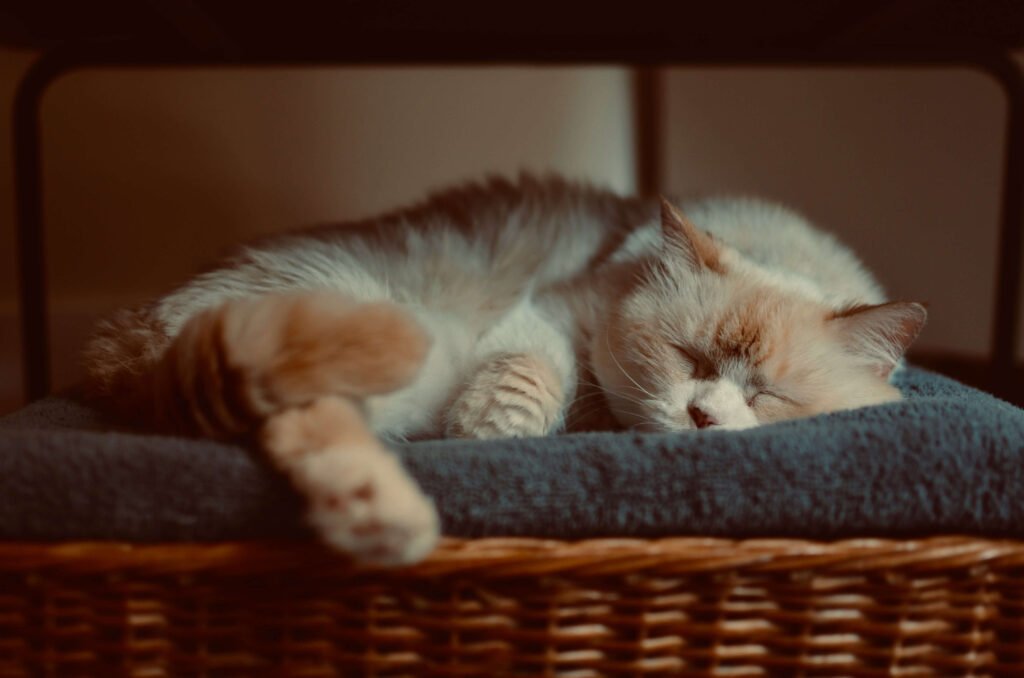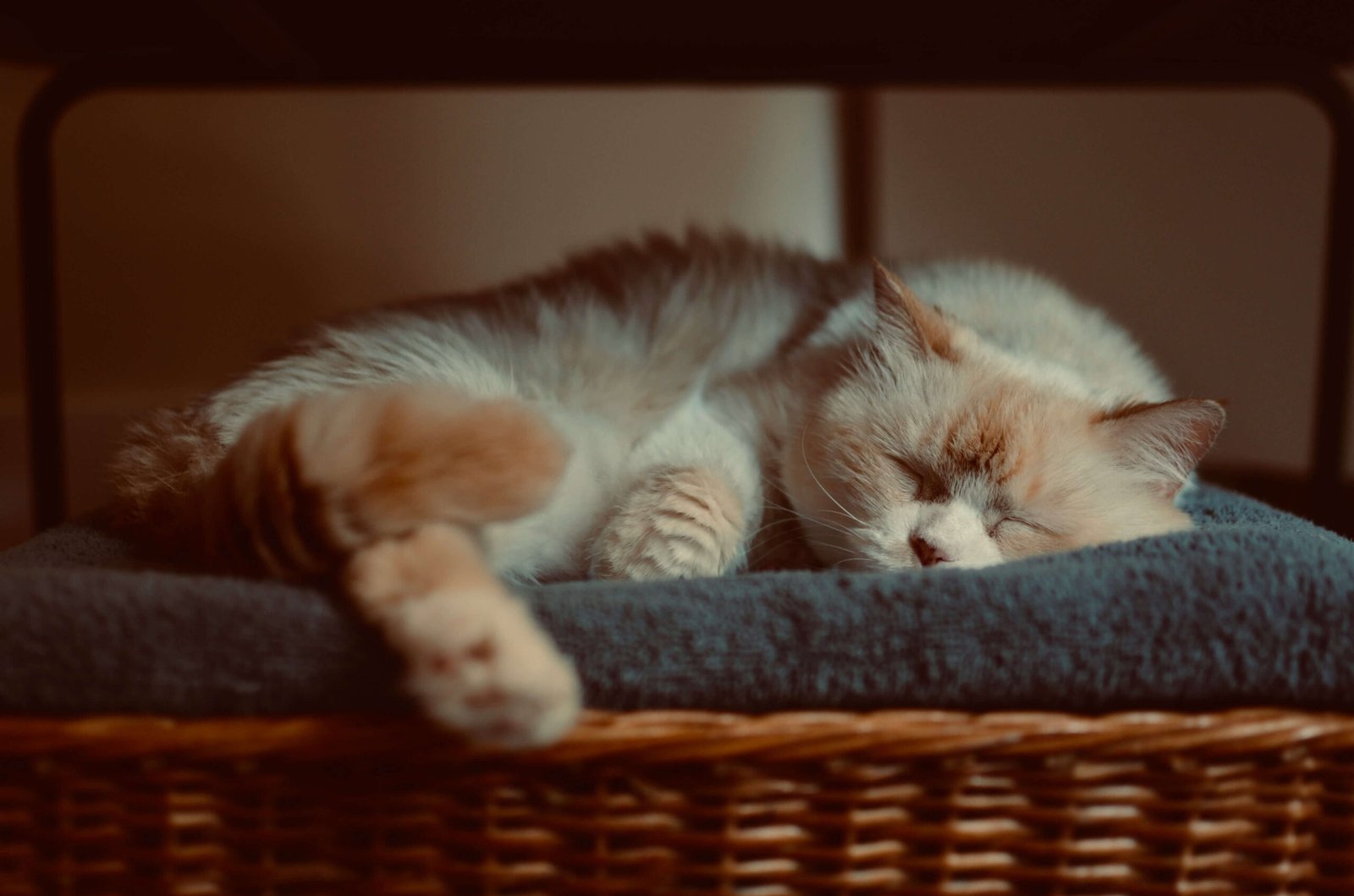Understanding Cat Ear Polyps: A Guide for Pet Owners
Cats are known for their playful nature and unique personalities, but like any living being, they can experience health issues that require attention. One such condition is the cat ear polyp, a relatively uncommon yet concerning ailment that can affect our feline companions. These benign growths, which develop in the ear or throat, often go unnoticed until symptoms become apparent. However, understanding what cat ear polyps are, how they form, and what treatment options are available can make all the difference in ensuring your pet’s well-being. In this blog post, we’ll explore everything you need to know about cat ear polyps, from their causes and symptoms to diagnosis and care.
What Are Cat Ear Polyps? Key Facts to Know
Cat ear polyps are non-cancerous growths that typically arise from the lining of the middle ear or the Eustachian tube. While they may sound alarming, these polyps are usually benign and treatable. Below is a breakdown of essential information about this condition:
Definition : A cat ear polyp is an abnormal growth of tissue that originates in the ear canal or throat area.
Location : These polyps often develop in the middle ear but can extend into the outer ear or throat.
Commonality : Although not extremely common, cat ear polyps tend to occur more frequently in younger cats, particularly those under three years old.
Appearance : Polyps can vary in size and may appear as pinkish, fleshy masses.
Growth Rate : They grow slowly over time but can cause significant discomfort if left untreated.
Understanding these key aspects of cat ear polyps is crucial for early detection and effective management. If you suspect your cat might have a polyp, consulting a veterinarian promptly is the best course of action.
Symptoms of Cat Ear Polyps: What to Watch For
Identifying the signs of a cat ear polyp early on can save your pet from unnecessary discomfort and complications. Here are some common symptoms associated with this condition:
Head Shaking : Cats with ear polyps may shake their heads frequently in an attempt to relieve irritation.
Ear Scratching : Excessive scratching around the ears is a telltale sign of discomfort caused by polyps.
Discharge : You might notice unusual discharge, such as pus or blood, coming from the affected ear.
Hearing Loss : In some cases, the growth can interfere with your cat’s ability to hear properly.
Balance Issues : If the polyp affects the inner ear, your cat may display difficulty maintaining balance or walking straight.
Recognizing these symptoms can help you take swift action. Early intervention ensures better outcomes and reduces the risk of complications. Always consult your vet if you observe any unusual behavior in your cat.
Check this guide 👉Natural Remedies for Cat Ear Infections: Best 7 Expert Tips!
Check this guide 👉Cat Ear Mites vs Wax: Best 7 Expert Tips!

Signs of Cat Ear Polyps | Treatment Options |
|---|---|
Frequent head shaking | Surgical removal |
Excessive ear scratching | Anti-inflammatory meds |
Unusual ear discharge | Antibiotics |
Hearing difficulties | Pain management |
Balance problems | Regular vet check-ups |
Causes of Cat Ear Polyps: Exploring the Root Factors
While the exact cause of cat ear polyps remains unclear, several factors are believed to contribute to their development. Understanding these potential triggers can help prevent or manage the condition effectively. Consider the following points:
Inflammation : Chronic inflammation in the ear or throat region may lead to polyp formation.
Viruses : Certain viral infections, such as feline calicivirus, could play a role in triggering polyps.
Genetics : Some cats may be predisposed to developing polyps due to genetic factors.
Age : Younger cats are more susceptible to ear polyps compared to older ones.
Immune System Weakness : A compromised immune system might increase the likelihood of polyp development.
By staying informed about these possible causes, pet owners can take proactive steps to minimize risks. Regular veterinary check-ups and maintaining good overall health are essential strategies.
Diagnosing Cat Ear Polyps: What to Expect
If you suspect your cat has an ear polyp, a proper diagnosis is critical for determining the best course of action. Veterinarians use various methods to confirm the presence of a polyp. Here’s what you should know:
Physical Examination : The vet will inspect your cat’s ears and throat for visible signs of a polyp.
Otoscopic Evaluation : A specialized instrument called an otoscope helps examine the ear canal in detail.
Imaging Tests : X-rays or CT scans may be used to assess the extent of the polyp’s growth.
Biopsy : In some cases, a small sample of the tissue is taken for analysis to rule out malignancy.
Anesthesia : Sedation might be required during diagnostic procedures to ensure accuracy and safety.
A thorough diagnosis allows veterinarians to create a tailored treatment plan. Remember, early detection increases the chances of successful recovery.
Preventive Measures for Cat Ear Polyps
Preventing cat ear polyps may not always be possible, but there are steps you can take to minimize the risk. By maintaining your cat’s overall health and addressing potential triggers early, you can reduce the likelihood of polyp formation. Here are some preventive measures to consider:
Regular Ear Cleaning : Gently clean your cat’s ears with a vet-approved solution to prevent infections that could lead to inflammation.
Monitor for Infections : Keep an eye out for signs of ear infections, such as redness or discharge, and seek treatment promptly.
Boost Immunity : Provide a balanced diet rich in nutrients to support your cat’s immune system and overall health.
Avoid Irritants : Minimize exposure to environmental irritants like smoke or strong chemicals that could inflame the ear canal.
Routine Vet Visits : Schedule regular check-ups to catch any issues early before they escalate into serious problems.
By incorporating these practices into your cat’s care routine, you can help protect them from conditions like ear polyps. Prevention is always better than cure, especially when it comes to your pet’s health.
Post-Treatment Care for Cats
After your cat undergoes treatment for an ear polyp, proper aftercare is essential to ensure a smooth recovery. Following your veterinarian’s guidance and monitoring your cat’s progress can make a significant difference in their healing process. Below are some tips for post-treatment care:
Administer Medications : Give prescribed medications, such as antibiotics or pain relievers, exactly as directed by your vet.
Monitor Healing : Check the treated area regularly for signs of infection, such as swelling or unusual discharge.
Limit Activity : Restrict vigorous play or activities that could irritate the surgical site during the recovery period.
Provide Comfort : Create a quiet, stress-free environment to help your cat rest and recuperate comfortably.
Follow-Up Appointments : Attend all scheduled follow-up visits to ensure the polyp hasn’t recurred and healing is progressing well.
Proper post-treatment care ensures your cat bounces back quickly and reduces the chances of complications. Always stay in close contact with your vet during this critical time.
Emotional Support for Your Cat During Recovery
Recovering from an ear polyp can be stressful for your cat, both physically and emotionally. Providing emotional support during this time is just as important as addressing their physical needs. Here are some ways to comfort your cat during their recovery:
Spend Quality Time : Engage in gentle interactions, such as petting or talking softly, to reassure your cat and strengthen your bond.
Offer Favorite Toys : Provide safe, non-strenuous toys to keep your cat entertained while they heal.
Create a Cozy Space : Set up a warm, quiet area where your cat feels safe and secure during their recovery.
Maintain Routine : Stick to your cat’s usual feeding and play schedule to provide a sense of normalcy.
Watch for Stress Signals : Look for signs of anxiety, such as excessive grooming or hiding, and address them promptly.
Emotional support plays a vital role in helping your cat recover fully and regain their playful spirit. A happy cat is more likely to heal quickly and return to their usual self.
Frequently Asked Questions About Cat Ear Polyps
What exactly is a cat ear polyp?
A cat ear polyp is a benign growth that develops in the ear or throat, often causing discomfort and other symptoms.
Are cat ear polyps dangerous?
While generally benign, untreated polyps can lead to complications such as infections or hearing loss.
How are cat ear polyps diagnosed?
Diagnosis involves physical exams, imaging tests, and sometimes biopsies to confirm the presence of a polyp.
Can cat ear polyps be cured?
Yes, most polyps can be successfully removed through surgery, and recurrence is rare with proper care.
What should I do if I suspect my cat has a polyp?
Schedule an appointment with your veterinarian as soon as possible for a professional evaluation.
Final Thoughts: Prioritizing Your Cat’s Health
When it comes to cat ear polyps, knowledge truly is power. By understanding the symptoms, causes, and treatment options, you’re better equipped to provide the care your furry friend deserves. Remember, early detection and prompt veterinary intervention are key to ensuring a positive outcome. As a responsible pet owner, staying vigilant and maintaining regular check-ups can go a long way in safeguarding your cat’s well-being. After all, a healthy cat means a happy home—and that’s something every pet parent strives for!
Do Cats Have Taste Buds? Best 7 Expert Tips! – Discover how cats experience flavors and why their taste is so unique.
Do Dogs Have Taste Buds? Best 7 Expert Tips! – Discover how dogs experience taste, their preferences, and what it means for their diet and health.
Can Cats Taste Sweet? Best 7 Expert Tips! – Discover why cats can’t taste sweetness, how it affects their diet, and tips to keep them healthy and happy.
Can Dogs Taste Sweet? Best 7 Expert Tips! – Discover how dogs perceive sweetness, which foods are safe, and tips to manage their sweet cravings responsibly.





